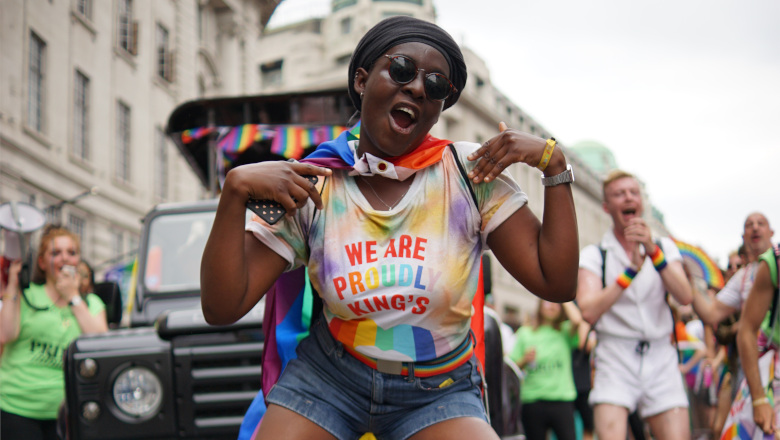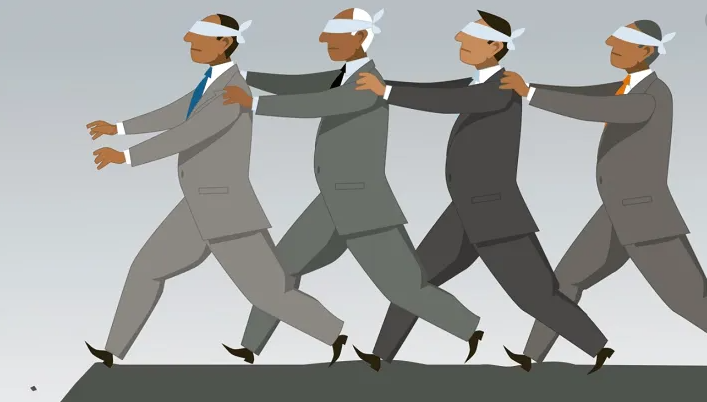This blog is part of a series from Director of Equality, Diversity and Inclusion, Sarah Guerra, where she will be addressing the ‘whole picture’ of EDI, why it is important, and how we go about making effective, systemic change.
Yesterday, I had the pleasure of opening our Network summit in partnership with Radius, and earlier in the week, the privilege of attending the launch of our new Mutual Mentoring scheme. In doing so, I was able to reflect on how essential building empathy and understanding are, and the role which staff networks play in EDI success. Celebrating diversity and difference and building community is a critical component of our EDI strategy here at King’s. It is one of the reasons we have made a conscious and proactive effort to develop and support staff networks, partner with KCLSU, broaden our development approach to More than Mentoring, and ensure that we continue to support network development and wellbeing via events like the Radius summit.
Celebrating difference is about recognising that each employee or student is unique and valuing that individual difference. It is about understanding each other and moving beyond tolerance, to fully embracing and celebrating the rich dimensions that a truly diverse community can bring. Celebrating cultural events across the year, whether it be Pride, Black History Month, Trans Awareness Week, or Disability History Month, which we are currently celebrating, helps to unite and educate, and allows us to better understand each other’s perspectives.
Through understanding a range of diverse backgrounds and experiences, we can all gain a sense of pride for the diversity of our culture. Celebrating and understanding varied backgrounds is crucial to personal and community growth.
There are so many benefits of celebrating differences and enabling people to be their true selves at work. For example, doing this helps us and our organisations overcome stereotypes.
‘A stereotype is an over-generalized belief about a particular category of people. It is an expectation that people might have about every person of a particular group’
Stereotyping, whether it be conscious or unconscious, is too commonplace. It has a negative impact on the way people see and behave with others who they perceive (consciously or unconsciously) as different. Stereotyping encourages us to make assumptions about others, which can be incorrect and hurtful, as well as hindering collaboration and teamwork. When an organisation celebrates differences, it encourages the dissolution of preconceived notions, breaks down stereotypes and helps us to see people for who they are.
Celebrating difference and counteracting stereotypes discourages racism, sexism, homophobia, and ableism, to name but a few key things we must combat. These are often borne out of fear and ignorance. In the workplace, it could be a subtle joke or simply leaving someone out; either way it is not something we want to persist. With increased awareness and appreciation of different cultures and races comes increased respect for other people and their differences. Prejudice and stereotypes are removed through education and celebration and their removal is a necessity to discourage the ignorance that supports these ‘isms’.
People tend to surround themselves with people ‘like them’, as it is familiar and safe. Therefore, it is important to actively build cultural awareness of difference. Encouraging working with different cultures and backgrounds not only helps to educate others and build appreciation of other cultures and their histories, but it can also prevent ‘groupthink’.
Groupthink is a phenomenon that occurs when a group of individuals reaches a consensus without critical reasoning or evaluation of the consequences or alternatives. Groupthink is based on a common desire not to upset the balance of a group of people.
It is proven that having a more diverse set of people in the room prevents groupthink, leading to innovation, which ultimately leads to better decision-making. Increasing openness to difference helps create new ways of working, improves current processes and gives people the ability to make changes in the way they work, for the better. Once again, I recommend my AKC lecture to consider this in more detail.
In seeking ‘unity’ we must, at the same time, remember and celebrate individual uniqueness. Without this we will not be enabling people to be themselves. We will instead risk forcing them to assimilate to ‘a norm’. Embracing and celebrating difference brings a greater breadth of ideas and solutions and builds a culture where everyone feels valued and appreciated. Developing this inclusive culture requires more sophisticated and capable managers, as increased diversity increases the perspectives and ideas that need to be reconciled and rationalised. One of the ways we are helping build this is via Cultural Competency, a set of behaviours which takes this thinking and embeds it into the curriculum and professional development for all students and staff.
I developed my own confidence and capability by learning about myself and my differences, and consequently, was able to move from feeling othered to feeling empowered and confident. This is why I believe that this celebration of difference and building of community is one of the most crucial requirements of being successful, and why I have embedded it within King’s overall EDI .

